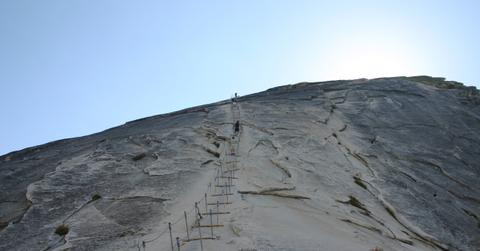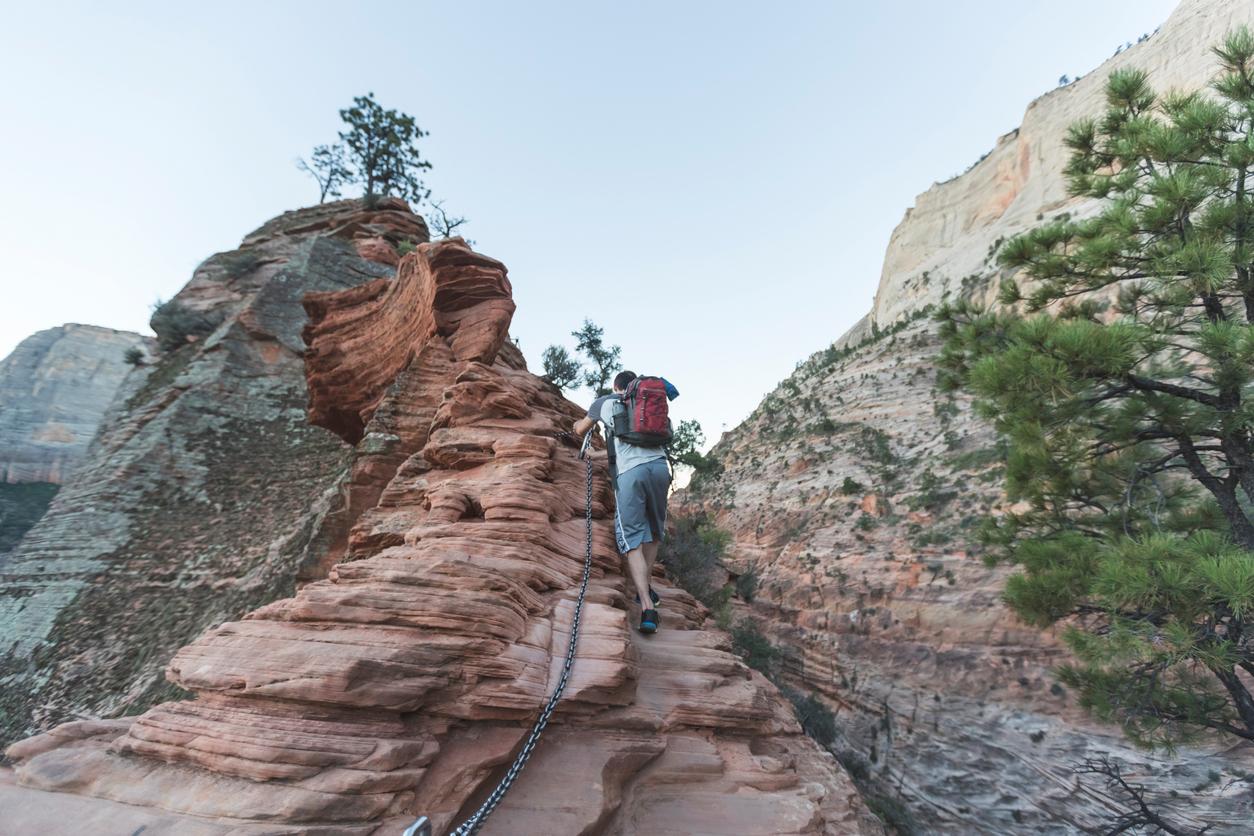Looking for a Thrill? Here Are 7 of the Most Dangerous Hikes in America
Published May 22 2023, 12:10 p.m. ET

There’s always the risk of danger when hiking, but some trails are more treacherous than others. And sometimes, when done safely, a thrilling experience is exactly what we need.
The most dangerous hikes in America are comprised of steep cliffs, narrow ledges, intense scrambles, and intimidating wildlife. If these are the kind of qualities that entice you, keep reading.
Angel’s Landing in Zion National Park

Despite being only 4.3 miles out-and-back, Angels Landing is extremely dangerous. Even though the trail starts out completely normal, the last leg is comprised of narrow, exposed ledges that have steep drops on both sides. Over the years, many people have died from falling.
The threat of danger didn’t stop visitors from attempting the trail — in fact, a permit system was actually put in place by the National Park Service in order to control traffic. Hiking Angels Landing is a special way to experience Zion National Park, but it’s important to take every safety measure possible.
Half Dome in Yosemite National Park
While it’s true that the 14 to 16-mile hike to Half Dome is full of incredible views, it’s not for everyone. Between the length of the trail, the elevation gain, and the cables, hikers must be in shape, prepared, and confident. However, if you can manage the feat, you’ll be met with fantastic views of the High Sierra and Yosemite Valley.
The cables section of the hike is typically the most dangerous. There have been few deaths, but injuries are relatively common, especially when people aren’t prepared. Slippery rocks and the altitude change can create risky conditions, Sierra explained.
The Maze in Canyonlands National Park
Unless you’re extremely map-savvy and in great shape both physically and mentally, it’s best to stay away from The Maze in Canyonlands National Park. This 13.5-mile trail is in a very remote area — having the proper gear and equipment for self-rescue is a necessity, according to the NPS. Due to the geography of the area, everything starts to look the same and it can be challenging to decipher landmarks.
Devil’s Path in the Catskill Mountains
When it comes to the Devil’s Path in the Catskill Mountains, the name speaks for itself. New York probably isn’t the first place to come to mind when brainstorming dangerous hiking locations, but this trail shouldn’t be underestimated.
Black bears, slick rocks, steep mountainsides, and vertical climbs all present very real risks for hikers on Devil’s Path. It’s important to proceed carefully and take the proper precautions. After prioritizing safety, this trail can take you on an adventure through a lush forest and lead you to stunning mountain views.
Mount Washington in New Hampshire
Many say that Mount Washington has the worst weather in the world, according to CNN. This means that hiking in the area isn’t a casual outing — it requires serious preparation. The weather can change in minutes and the elevation gain is no laughing matter.
Tuckerman Ravine and Lion Head Trail is 7.4 miles out-and-back. AllTrails recommended that hikers plan ahead and only attempt the trail if they’re experienced, both of these factors will keep visitors safe.
Capitol Peak in Colorado
In the Maroon Bells Snowmass Wilderness, those looking for a thrill head to Capitol Peak. This 15.9-mile out-and-back trail presents one main danger: the Knife Ridge. In order to complete the trail, hikers must traverse over a long stretch of narrow, granite rock, The Travel explained. Without the right experience, this hike could be incredibly dangerous.
Huckleberry Trail in Glacier National Park
If you’ve ever been to Glacier National Park, you know that running into a grizzly bear is a very real possibility. The chances of this occurring only increase when hiking on a longer, less traveled trail — Huckleberry Mountain Lookout seems to fit this description.
This 11.6-mile out-and-back trail showcases some great mountain views, a vibrant forest, and of course, lots of huckleberries. Nevertheless, animal encounters are typical, so much so that the trail is sometimes closed due to wildlife activity. When hiking in Glacier, be sure to always carry bear spray and know what to do in the case of an encounter.